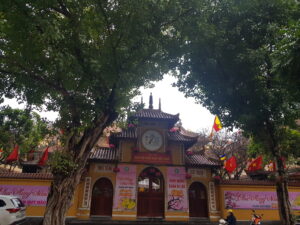Pilot study
"Exploratory Study on Transitional Justice in the Bangsamoro Autonomous Region in Muslim Mindanao, Southern Philippines: Focusing on Experience of Conflicts in the “Contact Zone”"
R5 2-3 (R5 AY2023)
| Project Leader | Yoshizawa Asuna (Kyoto University, Center for Southeast Asian Studies) |
| Research Project | Exploratory Study on Transitional Justice in the Bangsamoro Autonomous Region in Muslim Mindanao, Southern Philippines: Focusing on Experience of Conflicts in the “Contact Zone” |
| Countries of Study | Philippines |
Outline of Research
The objective of this research is to investigate how the experiences of people in the “contact zone,” such as those with roots of multiple ethnic/religious groups or those cohabiting with different ethnic/religious people, affect the institutionalization of transitional justice in the Bangsamoro Autonomous Region in Muslim Mindanao (BARMM). This year, as a pilot study, I will interview people living in the mixed communities of the BARMM regarding their experiences with conflicts. Through examining their narratives, this study will shed light on each person’s specific physical sense and emotion regarding past conflicts, which can deviate from inclusive discourse, such as “we are all victims” and divisive conflict memories of each ethnic group.
Purpose of Research, Its Significance and Expected Results, etc
The research aims to investigate how people’s experiences in the “contact zone” of mixed communities affect the policy and institutional formation regarding transitional justice in the BARMM and to examine how the relationship between different religious and ethnic groups will be reconstructed. As a pilot study, I will conduct field research in a Muslim, Christian, and non-Muslim indigenous people’s cohabiting community in the BARMM to hear experiences of conflict that are not captured by the discourse of hostile intergroup relations and the inclusive discourse of “we are all victims.”
Previous studies on peace and conflict in the Southern Philippines have emphasized the autonomous government’s institutional design, policy implementation, and resource allocation among elites or clans. Thus, they tend to downplay ordinary people as passive entities. In contrast, this study considers people’s experience in the contact zone as the key to determining the success of the BARMM. It focuses on the interactions between macro-level politics and everyday practices.
This study is significant because, first, it will contribute to developing research on transitional justice in the Southern Philippines with a deep understanding of the local context and the inhabitants’ senses and values. Second, it presents a case study of alternative peacebuilding in a post-conflict society.


